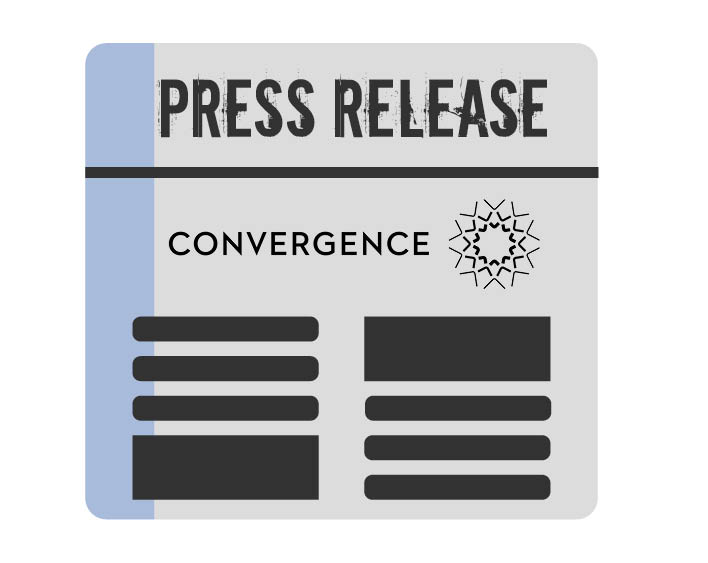The actionable solutions forged in the Convergence Collaborative on Pathways to Better Jobs will match worker skills with employer needs, improve worker economic mobility, and boost employer competitiveness.
Washington, D.C., August 23, 2023, — In a new report, Convergence Center for Policy Resolution released a series of recommendations and tools to address several of the biggest obstacles facing workers and employers today. This Blueprint for Action represents the consensus built by a diverse group of leaders who participated in the Convergence Collaborative on Pathways to Better Jobs, a multi-stage convening over many months. The Blueprint proposes changes to improve accountability and coordination within and between workforce systems, employers, and community organizations; build momentum for investment in training programs; and scale up workforce development and employer partnerships pilots that are already successfully bolstering communities.
“Both workers and employers are struggling today, in many parts of our economy, to consistently and efficiently match worker skills and priorities and the employer job requirements,” said Convergence President and CEO David Eisner. “As the consensus among our participants demonstrates, America’s collective interest in improving both economic mobility and U.S competitiveness transcends partisan arguments. The solutions called for offer a clear pathway for policymakers and business leaders, and the accompanying tools aim to improve processes for HR professionals, career navigators, and educators. The release package aims to provide a positive impact for all actors who invest in and benefit from strengthening our labor market.”
Recommendations from the report’s findings focus on three major areas for improvement:
- Identify needs and gaps within the existing workforce system. Determine hurdles that impede full success for workers and employers, and potential changes at the public, private, and policy levels that could better match worker skills with employer needs in a rapidly evolving job market.
- Connect workers. With a focus on low- and moderate-wage positions, identify opportunities in a rapidly changing job market to grow worker skills and qualifications, better match those skills to employer needs, and navigate the on- and off-ramps that build economic mobility and financial security for their future.
- Empower employers. Identify strategies for employers to differentiate themselves and boost the recruitment, retention, and productivity of employees by creating more sustainable pathways to develop and acquire job-ready talent.
The Blueprint for Action is accompanied by a series of novel tools envisioned and developed by the participants in the Convergence Collaborative, that aim to improve access and opportunity for workers and employers alike:
- Career Advancement Guide: For those that engage directly with workers such as HR professionals, supervisors, mentors, and career navigators, to provide guidance and resources to help workers maximize each stage of their career.
- Universal Essential Skills Framework: For employers, career navigators, and others that engage directly with workers to communicate the essential skills that individuals should be cultivating, and which will support their journey toward upward mobility.
- Work-based Learning Taxonomy: For individuals, employers, educators, and others who want to understand the definition, types, and examples of work-based learning programs.
In addition, a number of project participants came together to draft a Career Navigation Coalition Statement and a Work-based Learning Coalition Letter. The Career Navigation Statement is to be shared with policymakers to call for state funding for programs and opportunities that support resources for workers to cultivate in-demand and essential skills. The Work-based Learning Coalition Letter is to be shared with national, state, and local policymakers, including but not limited to workforce development boards, adult education, and apprenticeship offices. The Coalition Letter seeks to educate, inform, and advocate for investment and expansion of work-based learning programs for funding and incentives for employers to implement work-based learning programs.
This Convergence Collaborative, which reflects Convergence’s ongoing focus on issues associated with Economic Opportunity, builds on two previous Convergence efforts to increase economic mobility and security for unemployed and low- and moderate-income workers: the Convergence Dialogue on Economic Mobility (also known as Working Up, 2018) and Economic Recovery for America’s Workers (2020).
Convergence served as a neutral third-party convenor for the Convergence Collaborative on Pathways to Better Jobs project – the latest of its flagship Collaboratives. Convergence Collaboratives are inclusive and collaborative processes, informed by social science, in which diverse groups of leaders come together to find common ground, build trust, develop consensus solutions, and move forward in unlikely alliances to achieve constructive change on intractable issues. Convergence’s proven methodology includes five phases: selection of a ripe, amenable issue, convening of a diverse table of divided leaders and doers, facilitation of trust-building across divides, generation of consensus recommendations, and delivering on-the-ground implementation, with the goal of societal impact by inspiring collaboration over conflict.
This project is generously supported by Walmart and The Fetzer Institute.
About Philanthropy at Walmart
Walmart.org represents the philanthropic efforts of Walmart and the Walmart Foundation. By focusing where the business has unique strengths, Walmart.org works to tackle key social and environmental issues and collaborate with others to spark long-lasting systemic change.
About The Fetzer Institute
The Fetzer Institute’s mission is to help build the spiritual foundation for a loving world. Learn more and sign up for Fetzer’s newsletter.
About Convergence Center for Policy Resolution
Convergence is the leading organization bridging divides to solve critical issues through collaborative problem-solving across ideological, political, and cultural lines. For more than a decade, Convergence has brought together leaders, doers, and experts—many who never thought they could talk to one another—to build trusting relationships, identify breakthrough solutions, and form unlikely alliances for constructive change on seemingly intractable issues. Our process is improving the lives of Americans and strengthening democracy for a more resilient and collaborative future. For more information, visit convergencepolicy.org.


